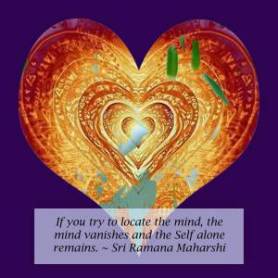D.: How to get over the cycle of births and deaths?
M.: Learn what it means.
D.: Should I not leave my wife and family?
M.: How do they harm you? First find out who you are.
D.: Should not one give up wife, wealth, home?
M.: Learn first what samsara is. Is all that samsara? Have there not been men living among them and getting realisation?
(From ‘Talks with Sri Ramana Maharshi’ 31)
~~~~~~~~~~~~
In Yoga, the idea of detaching oneself from the world of senses and sense impressions is deeply embedded. Patanjali’s yoga Sutras specifically mention the various steps in reaching Enlightenment including Pratyahara. Pratyahara means to withdraw the senses from the outer world.
View original post 358 more words










